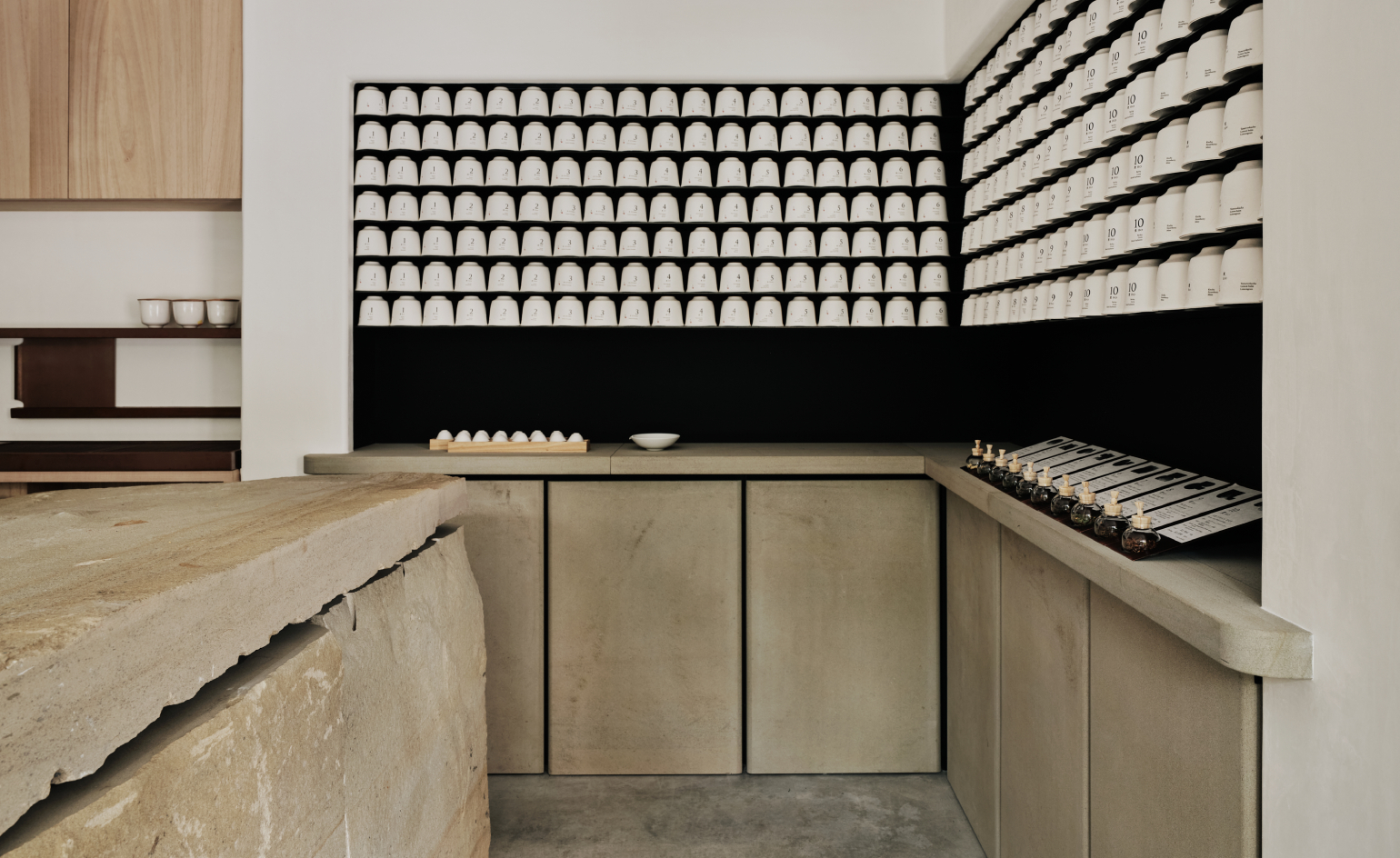
Tea and craft are markers of the coexistence between humans and nature. These elemental ingredients lie at the heart of Ogata at The Shinmonzen, a new teahouse and boutique in Kyoto that offers a contemporary reinterpretation of Japan’s traditional tea culture. The new space sits just behind the latticed façade of The Shinmonzen, an escapist, contemporary nine-suite hotel designed by Tadao Ando, on a quiet street in the Gion district.
Ogata at The Shinmonzen, Kyoto
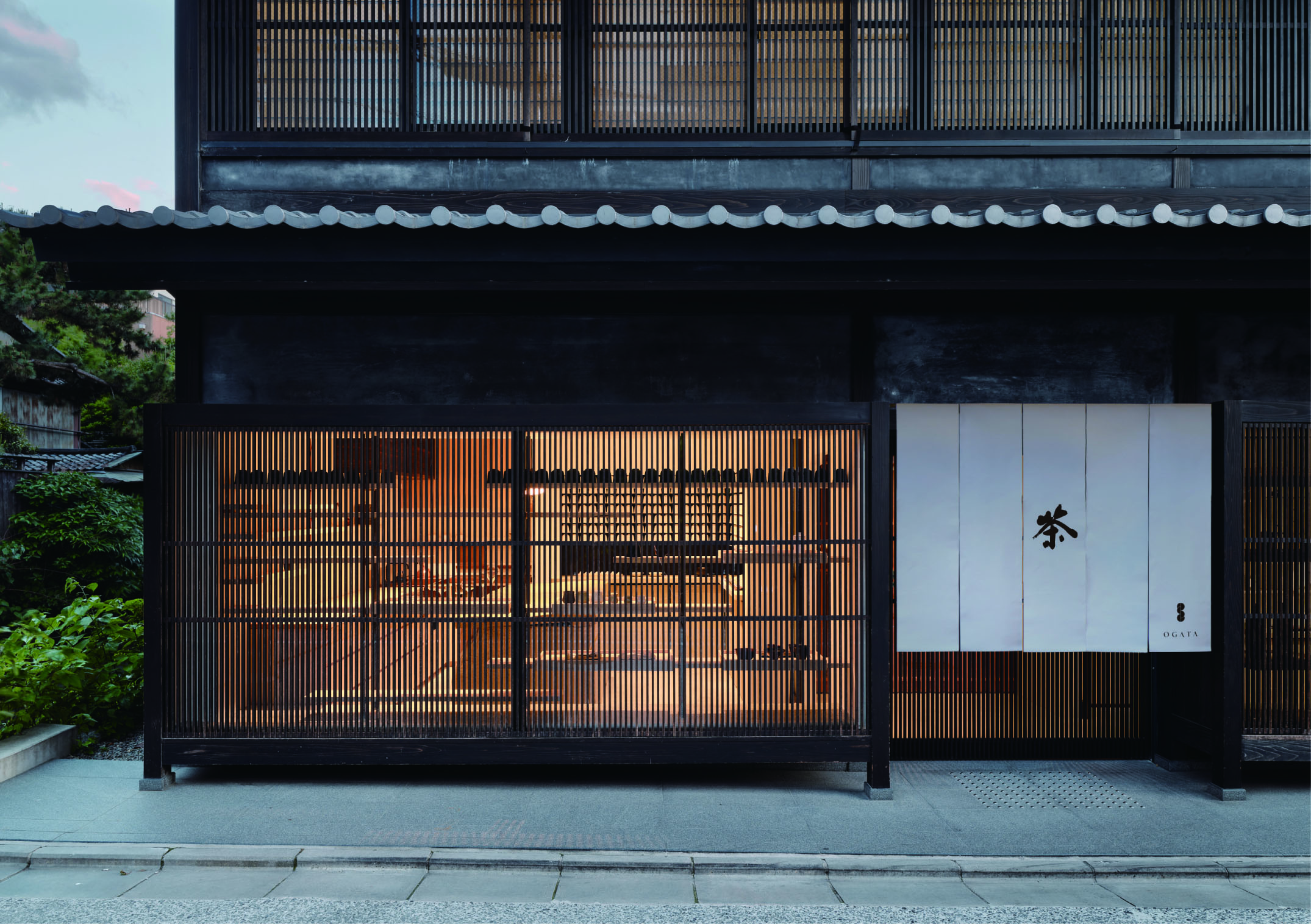
Ogata at The Shinmonzen was brought to life by Shinichiro Ogata, founder of Tokyo-based studio Simplicity, long respected for its contemporary reimaginings of Japan’s traditional culture for daily life. This one follows in the footsteps of flagship Ogata Paris, which opened four years ago with a boutique, restaurant, tea salon and gallery in a 17th-century hôtel particulier in the Marais district.
The Kyoto rendition, like the ancient city itself, is intimately scaled. Light-flooded and serenely minimalist with a natural material palette, it spans two spaces, accessed via a street-level entrance cut into the hotel’s wooden façade. The left side is all about tea and confectionery, the former prepared at a central stone counter, where crafted traditional wagashi sweets are served. On the right is a curation of crafted objects, including teapots, tea cups and Yoka fragrance – layered blends of natural ingredients ground with a traditional mortar, so, unlike incense, the scent fills the air without being burnt or heated.
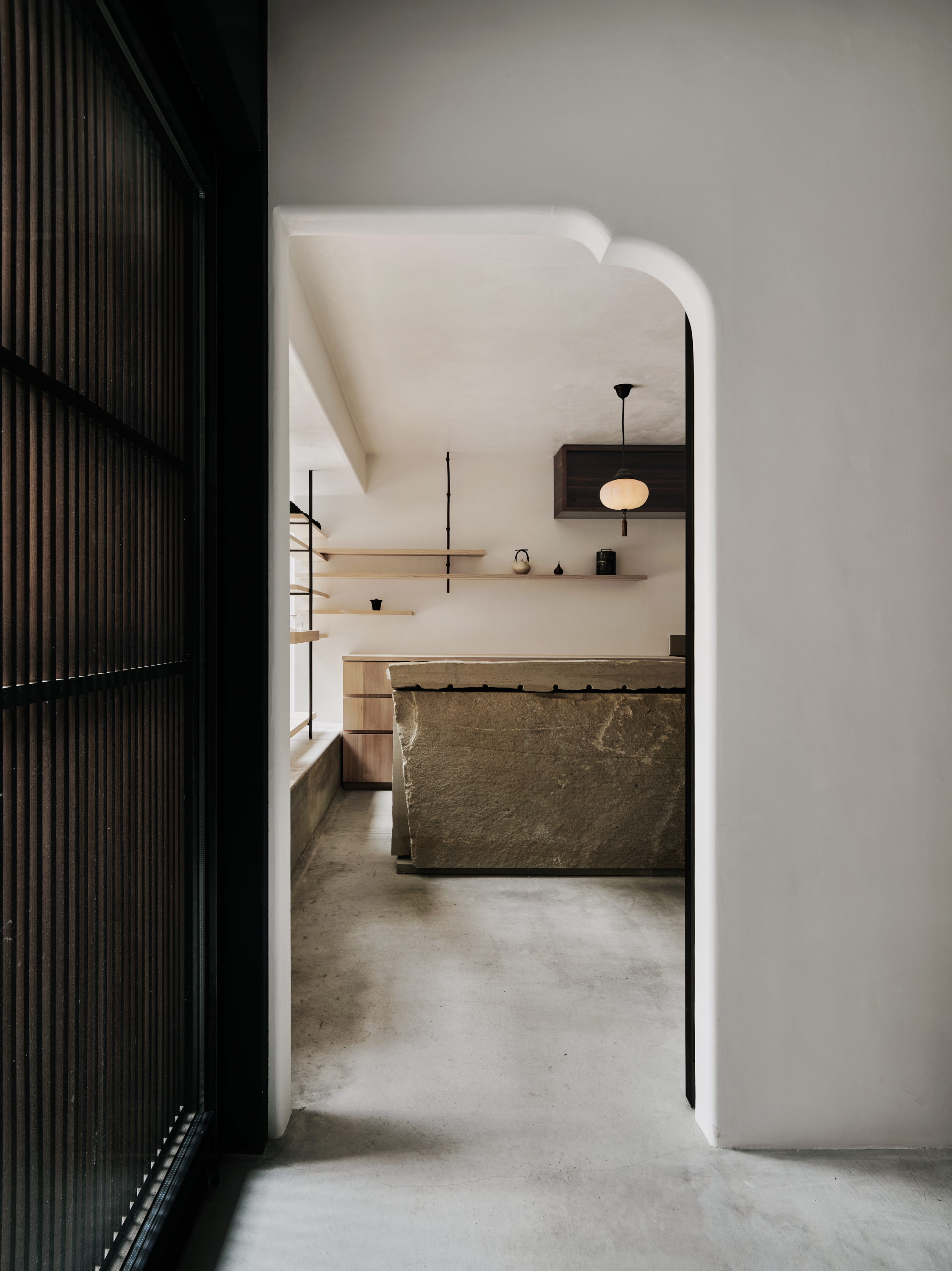
Hoping to ‘propose a way of being that embodies the coexistence of people with nature’, Ogata says, ‘the space is a creative expression of this: two parallel rooms existing in symbiosis. The left section, where Japanese tea and sweets are featured, is raw and natural. The right side, where the objects for daily living are placed, is more structured. Decked with an almost latticework series of shelves, it is a homage to the city of Kyoto and its grid pattern streets.’
The materials and atmosphere are anchored in Japan’s tea culture – as reflected in the standing counter, its raw organic lines hewn from stone sourced from Kyushu, a southern island with a rich tea heritage. ‘Carved out of the earth so as to enhance nature’s etchings, it is very much the gathering place, where the guests are greeted, tea is brewed, objects wrapped,’ explains Ogata.
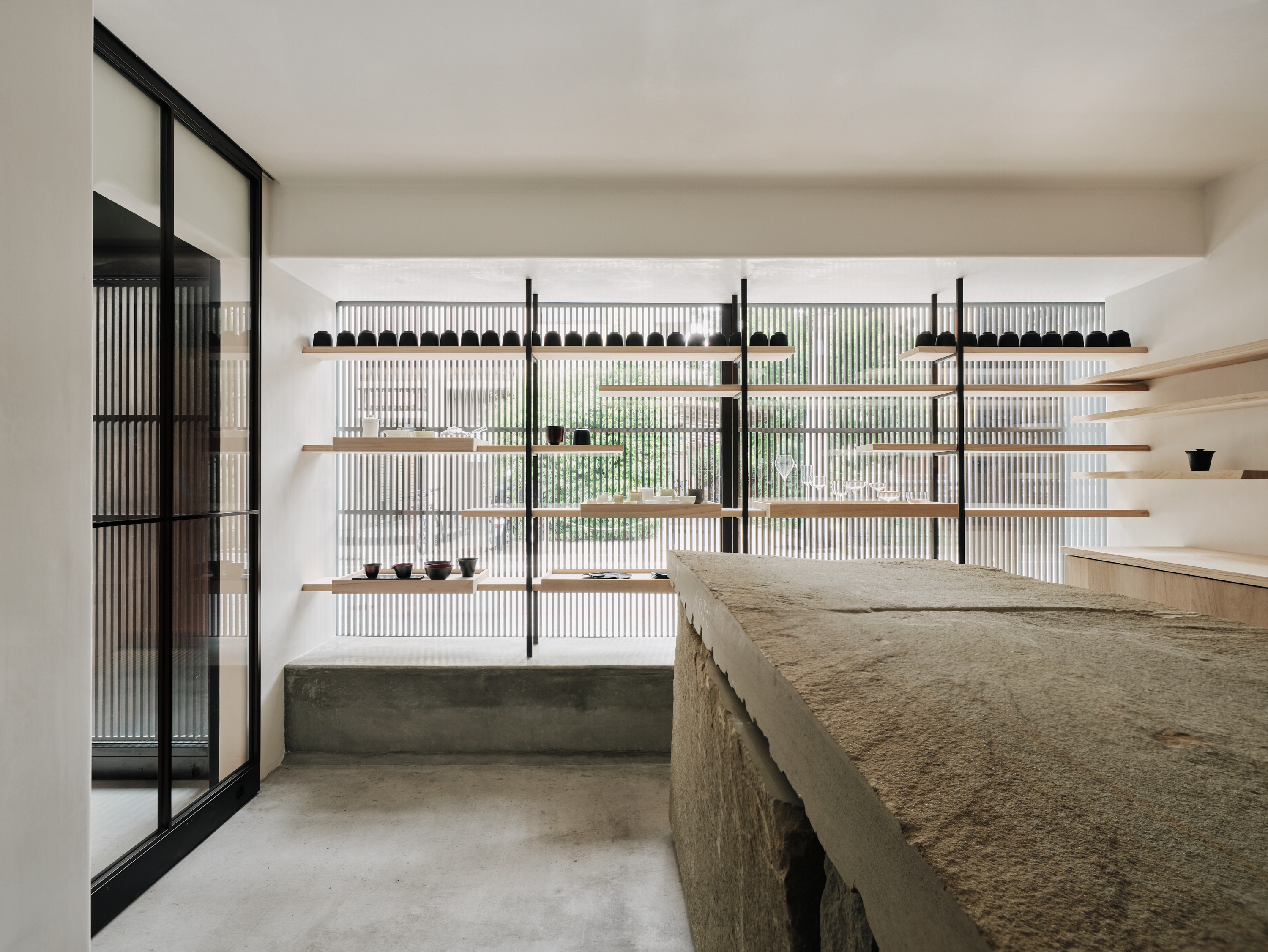
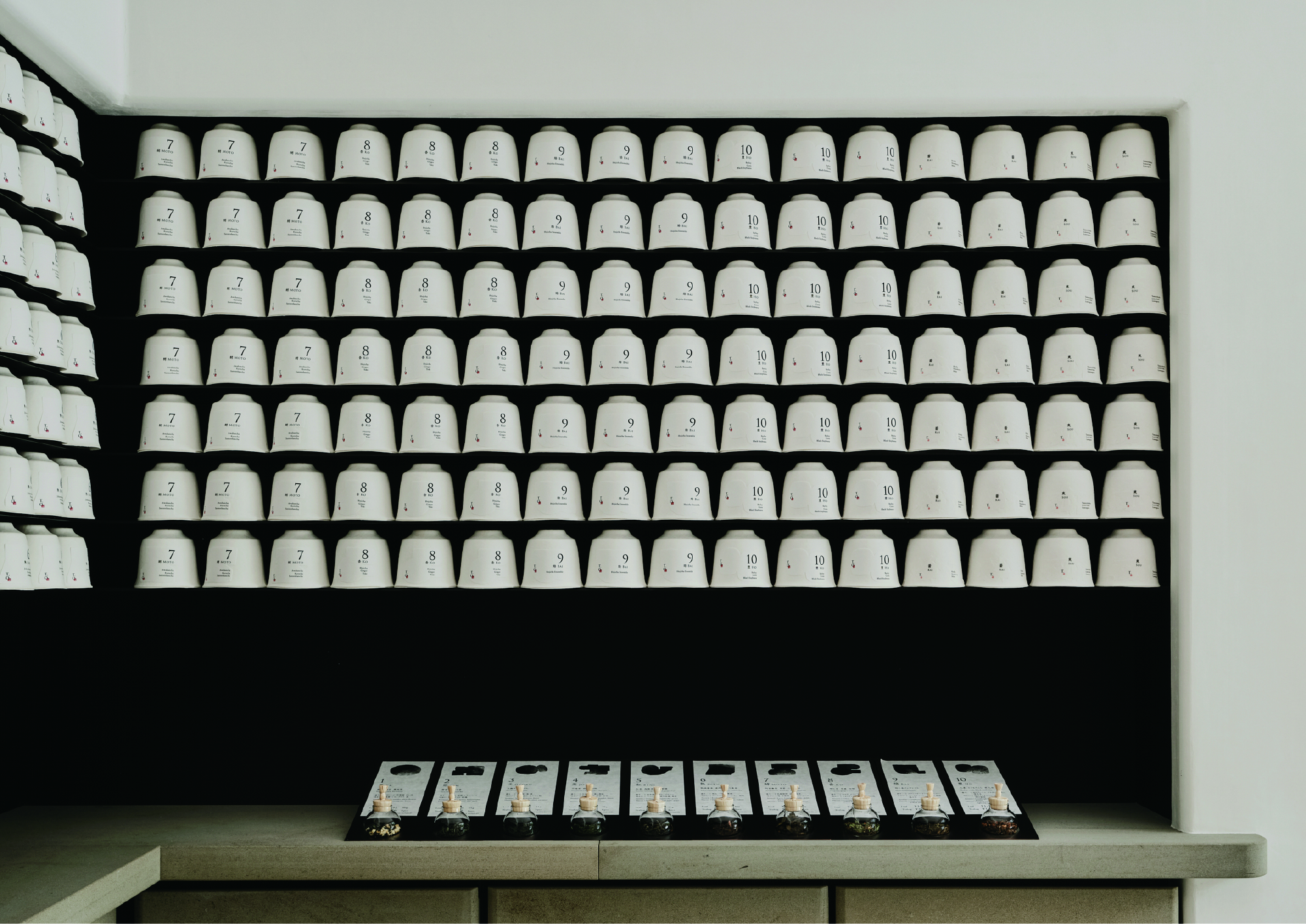
Ten bespoke Japanese tea blends, neatly lined up, are packaged in organic white vessels, crafted from biodegradable bamboo and bagasse – to which boiling water can be directly added, either for an on-the-spot counter tea or to take home. These include tea No.1, a refreshing blend of sencha, yuzu peel and kuromoji twigs, recommended to ‘invigorate and start the day fresh’.
‘I created ten blends in pursuit of the possibilities of Japanese tea for people around the world to enjoy in their daily lives,’ says Ogata, who is opening a third outpost at Château la Coste in France over the coming year. ‘The blends not only reveal the myriad flavours of Japanese tea, but each was created with intention and a proposal of how to enjoy them. There are more invigorating blends to start the day, others I recommend to pair with meals, and even a tea to calm the mind in the evening.’
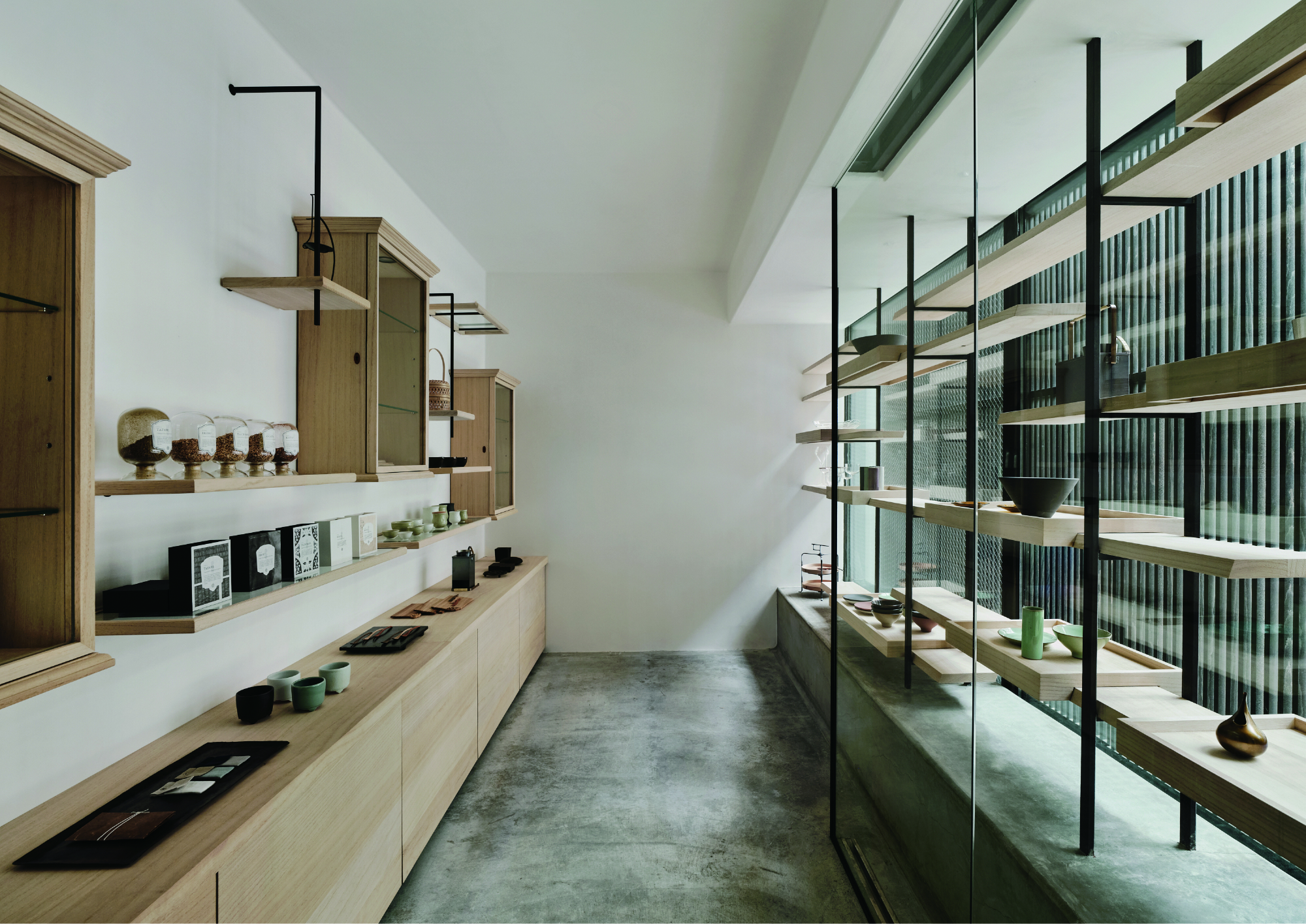
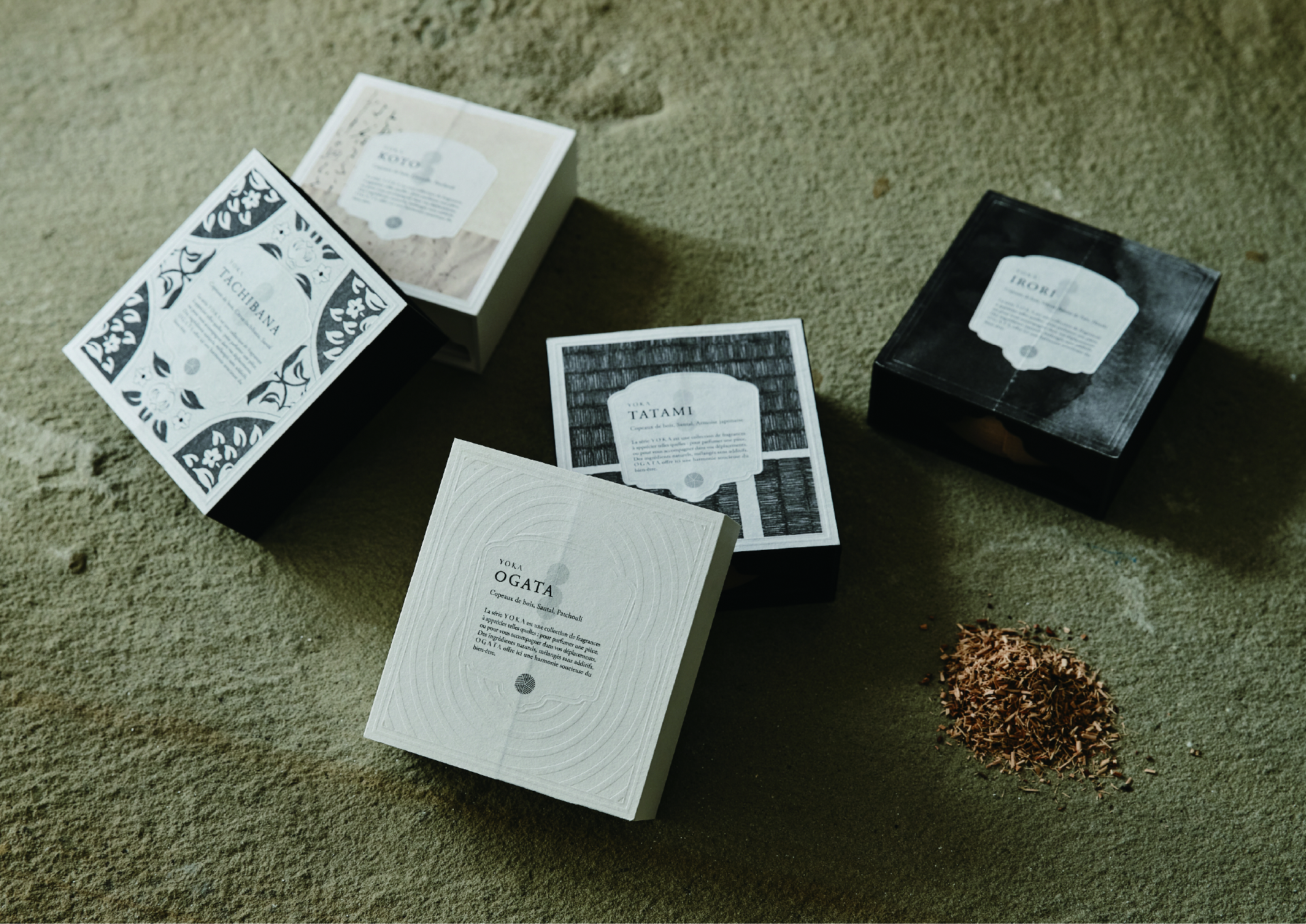
He adds: ‘Many people associate Japanese tea with the tea ceremony, and the many rules associated with it, which can be rather daunting. However, this is only a fraction of the Japanese tea culture; it is also very much an everyday beverage with hundreds of varieties enjoyed across regional Japan.’
For Ogata, the words ‘natural’, ‘dignified’ and ‘of the present’ best sum up the atmosphere of the new spaces. ‘Not only is natural tea beneficial to our health, but more importantly, it brings people together around a common experience. The simple act of adding water to leaves is not bound by culture or religion; with just a few minutes, tea can facilitate this human necessity of slowing down and being together. Through making Japanese tea more accessible to the world, I hope to bring back these simple daily rituals into our hectic lives.’
Find Ogata at The Shinmonzen, Shinmonzen-dori, 235 Nishinocho, Higashiyama Ward, Kyoto, 605-0088, Japan, theshinmonzen.com
This article appears in the October 2024 issue of Wallpaper*, available in print on newsstands from 5 September on the Wallpaper* app on Apple iOS, and to subscribers of Apple News +. Subscribe to Wallpaper* today.







